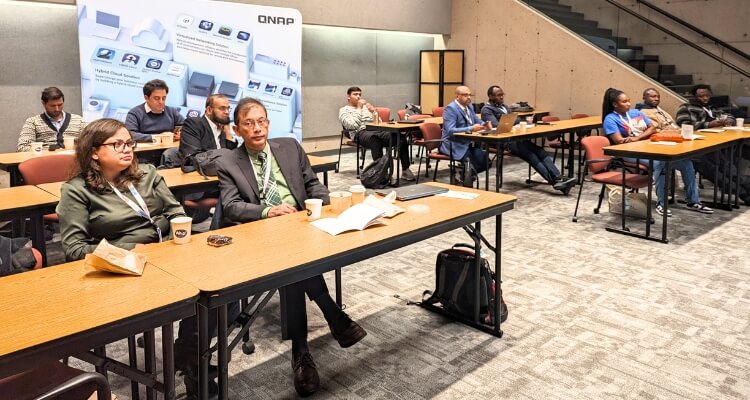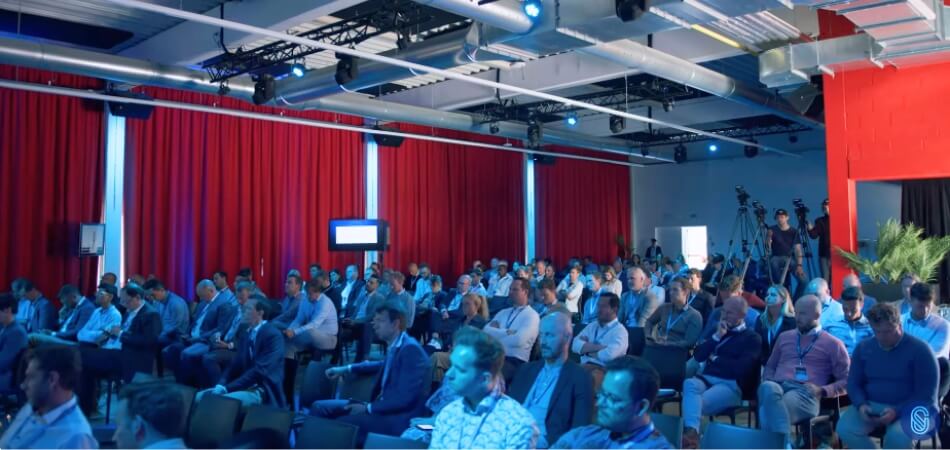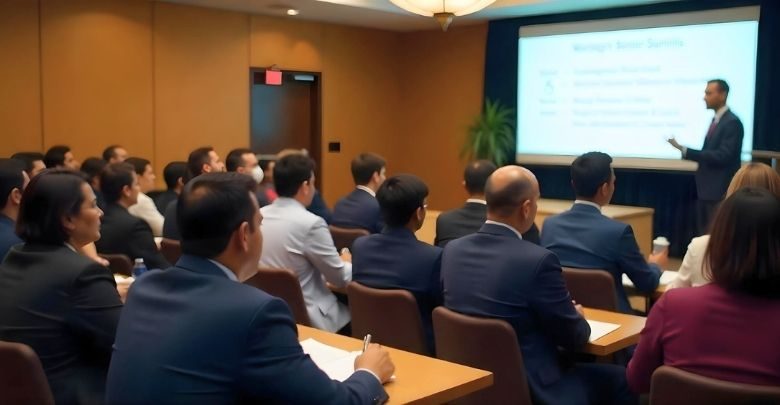Participating in an autism and disability studies conference in Canada offers valuable insights into the latest research, inclusive practices, and support strategies. For professionals and students in India, this is an excellent opportunity to engage with experts and expand networks internationally. But the question is: How to attend the autism and disability studies conference in Canada from India?
The first step is to research upcoming conferences, register, and request an official invitation letter from the organizer to support your visa application. Then, arrange the necessary travel documents, accommodations, and a budget for the trip.
Following these steps will help simplify your conference journey. Read on for a detailed guide, including tips for virtual attendance and ways to make the most of your experience abroad.
Autism and Disability Studies Conference in Canada – Is It Evolving Day by Day?
Yes, the Autism and Disability Studies Conference in Canada is growing quickly. Throughout the year, new research and practices are emerging, reshaping our view of the field. With these conferences, the community is able to gain a new perspective on inclusion, accessibility, and individualized support.
Conference organizers continuously update topics to reflect shifting societal needs and global advances. Attendees gain insights from global experts on innovative tools and therapies. This approach ensures discussions remain relevant and benefit professionals, caregivers, and advocates alike.
To stay connected with the latest in autism and disability studies, attend the autism and disability studies conference in Canada. Attending opens doors to networking, learning, and professional growth. By engaging directly, you’ll access knowledge that can positively impact the lives of many.
What to Expect at The Conference?
You can learn, connect, and explore practices that are inclusive when you participate in a conference on autism and disability studies. Participants can gain insights from experts, engage in meaningful discussions, and network with others passionate about inclusion. Here’s what to expect to make the most of this enriching experience:
Inspiring Keynote Speakers
At the conference, renowned experts in autism and disability studies share their valuable insights through keynote sessions. These talks focus on current research, real-world applications, and future trends in inclusive education. Keynote speakers often discuss innovative methods that can reshape disability support and accessibility. Expect to leave these sessions feeling inspired, informed, and ready to make a difference.
Interactive Workshops and Sessions
Interactive workshops allow attendees to engage in hands-on activities, learning from practical, real-life examples. These sessions are designed to provide a deeper knowledge of disability and autism support. Facilitators encourage open discussions, making it easier to apply new skills effectively. Participants gain useful tools, preparing them for impactful work in their communities.
Networking Opportunities
Connecting with like-minded individuals is a highlight of this conference, enabling valuable professional and personal exchanges. Networking events allow participants to meet others working in autism and disability fields.
Conversations often lead to collaborative ideas and potential future projects. These interactions foster a supportive community committed to positive change.
Panel Discussions on Emerging Topics
Panel discussions cover diverse and emerging topics, including advancements in technology and inclusive policies. These discussions bring together experts with varied perspectives, creating a dynamic and engaging environment. Audience members can ask questions, gaining clarity on complex issues and trends. Expect lively conversations that shed light on new ideas shaping the field.
Resource Exhibits and Information Booths
Resource exhibits showcase tools, publications, and technologies developed to support individuals with autism and disabilities. These booths provide hands-on access to the latest resources for educators and advocates. Representatives share valuable insights on best practices, making it easy to stay updated. Attendees can explore practical resources to implement in their work.
How to Attend the Autism and Disability Studies Conference in Canada from India?
Getting involved in an Autism and Disability Studies Conference in Canada from India offers a chance to gain international insights and make meaningful connections. To ensure a smooth experience, follow this step-by-step procedure to plan your trip successfully. Here’s how to start, from research to arrival:
Step 1: Research Relevant Conferences and Choose One
Begin by exploring upcoming autism and disability studies conferences held in Canada. Look at conference themes, speakers, and session details to match your interests. Many conferences publish schedules and topics in advance, making it easier to choose. Make sure the event aligns with your professional or personal goals.
Step 2: Register for The Conference and Pay the Fees
After selecting the conference, register on the event’s official website. Carefully follow registration instructions to avoid any application issues. Ensure you pay all registration fees to confirm your attendance. Keep a copy of the confirmation as it will help with further arrangements.
Step 3: Request an Invitation Letter from The Organizers
For visa purposes, contact the conference organizers to request an official invitation letter. This letter is essential for proving the purpose of your visit to Canada. Provide your registration details when requesting the letter to simplify verification. The invitation letter will help facilitate your visa application process.
Step 4: Apply for A Canadian Visa and Prepare Documents
With the invitation letter, begin the visa application process at your nearest Canadian embassy or online. Gather the required documents, including your passport, bank statements, and registration confirmation. Submit accurate information to avoid potential delays or complications. Since processing times vary, apply well in advance.
Step 5: Book Flights and Accommodation in Advance
Once your visa is approved, book your flights and accommodation promptly. Compare prices from airlines and hotels to find suitable options within your budget. Choosing accommodations close to the conference venue can provide convenience. Early booking often leads to better rates and room availability.
Step 6: Review Itinerary and Conference Schedule
Before participating in autism and disability conference, review the conference itinerary and plan the sessions you wish to attend. Familiarize yourself with session timings, speakers, and topics of interest. Preparing in advance will ensure you make the most of your experience. Arriving organized allows you to focus on learning and networking.
Budgeting for Your Conference Trip: Key Costs to Consider
Budgeting for a conference trip requires planning for various expenses to make your experience smooth and stress-free. Staying within your budget while ensuring a comfortable trip can be achieved by understanding the key costs. Here’s a guide to help you prepare financially for your upcoming conference.
Conference Registration Fees
Most conferences have a registration fee, which varies based on the event’s scale and offerings. Some offer early bird discounts, so check deadlines and register promptly. Fees may cover materials, access to sessions, and refreshments during breaks. Carefully review the conference package to understand exactly what is included.
Travel and Transportation
Flights are often the most significant cost for international conference trips, especially with peak-season rates. Book your flights early to take advantage of lower prices and more options. Factor in additional transportation, like airport transfers and local travel near the venue. Researching transport costs in advance can help prevent overspending.
Accommodation Costs
Choosing a hotel close to the conference can save time and commuting expenses during your stay. Compare prices and read reviews to find suitable, budget-friendly accommodations. Some conferences partner with nearby hotels for discounts, so check for any available deals. Booking early often provides better rates and options.
Meals and Daily Expenses
While some meals may be covered, plan for additional food expenses during your trip. Research affordable dining options near your accommodation to manage costs effectively. Many cities offer a range of budget-friendly options, including local markets and cafes. Tracking daily expenses will help you stick to your budget.
Miscellaneous and Emergency Funds
Unexpected costs, like tips, minor purchases, or last-minute needs, can add up during travel. Set aside a small amount for unforeseen expenses to avoid stress. Having an emergency fund also helps cover unexpected issues like transportation delays or health needs. Keeping extra funds ensures you’re prepared for any situation.
Tips for Maximizing Your Conference Experience in Canada
A conference in Canada offers a unique chance to expand your knowledge, network, and gain new perspectives. Making the most of this experience requires thoughtful planning and active engagement. Here are some essential tips to ensure a fulfilling and productive conference journey.
- Plan Your Schedule in Advance: Review the conference agenda, selecting sessions and speakers that align with your interests. Consider the variety of panels and workshops available. By joining autism and disability conference sessions that resonate with your goals, you will enrich your overall experience.
- Engage Actively in Sessions: Participate in discussions, ask questions, and share perspectives to deepen your learning. Active involvement enhances your understanding and encourages networking with like-minded attendees.
- Network During Breaks and Social Events: Use break times to meet fellow attendees, build connections, and exchange ideas. Many lasting professional relationships start during informal, relaxed conversations.
- Take Detailed Notes: Record important insights, questions, and ideas from each session to revisit later. Organized notes can serve as valuable references for future work or study.
- Explore Exhibit Booths and Resources: Visit exhibit areas to discover tools, publications, and new technologies relevant to your field. Exhibits often offer hands-on experiences that enrich your learning.
- Stay Open to New Perspectives: To gain a broader knowledge of issues, encourage speakers and participants to share their diverse viewpoints. Flexibility in thinking can lead to valuable new insights.
- Follow Up with Connections: After the conference, reach out to new contacts and maintain communication. Building a network beyond the event encourages potential collaborations and shared learning.
- Reflect and Apply What You Learn: Reflect on key takeaways and think about ways to implement them in your work or studies. Practical application turns learning into meaningful change.
FAQs About How to Attend the Autism and Disability Studies Conference in Canada from India?
This FAQ section is designed to address common questions and provide helpful tips for attending an autism and disability studies conference in Canada from India. Covering practical details, networking strategies, and more, these answers can guide you in making the most of your international conference experience.
Can Students from India Attend the Conference?
Yes, students from India are encouraged to attend, gaining valuable insights and networking with global experts. Conferences often offer student discounts and specialized sessions for emerging professionals, providing an excellent opportunity for learning and professional growth.
What Are the Benefits of Attending the Conference in Person?
Attending in person offers direct interaction with global experts, hands-on workshops, and networking with like-minded professionals. It allows you to immerse yourself fully, engage in discussions, and create lasting professional relationships that may not be possible through virtual attendance.
What Are the Language Requirements for the Conference?
Most conferences in Canada are held in English, so proficiency in English is beneficial. However, some sessions may offer language support, such as live translation or materials in other languages, to ensure accessibility for all attendees.
How Can I Prepare to Network Effectively?
Research attendees, speakers, and topics beforehand to engage in relevant conversations. Attend social events, ask thoughtful questions, and follow up with contacts afterwards to create lasting connections that can support your career growth and collaborations.
Is There a Dress Code for the Conference?
Generally, conferences follow a business casual dress code. Dressing professionally shows respect and helps you make a good impression. For specific guidelines, check the conference website, as some events may have formal dinners or networking sessions with set attire.
How Do I Stay Updated on Conference Announcements?
Sign up for the conference newsletter, follow its official social media pages, and check the website regularly. These sources will provide real-time updates on session details, speaker additions, and any last-minute changes.
Bottom Line
As an Indian, attending a conference in Canada on autism and disability studies can be a great opportunity to learn about global advancements, network, and experience growth. To simplify the journey, start by choosing a relevant conference, completing registration, and requesting an invitation letter for visa purposes.
The process of how to attend autism and disability studies conference in Canada from India involves organizing travel documents, booking flights and accommodations, and preparing a budget. With thoughtful planning and an open approach to learning, you can maximize this experience, gaining valuable insights and meaningful professional connections to benefit your work in autism and disability studies.








